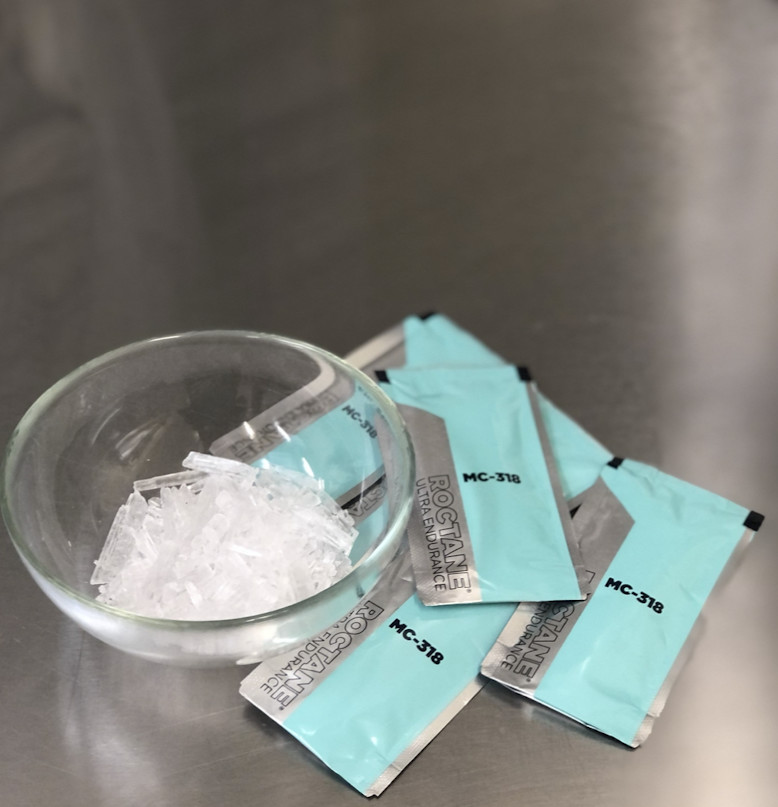Running News Daily
Running News Daily is edited by Bob Anderson. Send your news items to bob@mybestruns.com Advertising opportunities available. Train the Kenyan Way at KATA Kenya and Portugal owned and operated by Bob Anderson. Be sure to catch our movie A Long Run the movie KATA Running Camps and KATA Potato Farms - 31 now open in Kenya! https://kata.ke/
Index to Daily Posts · Sign Up For Updates · Run The World Feed
Gu Is Developing a ‘Cooling’ Energy Gel for Those Hot Summer Runs
The gel lowers perceived heat stress, which could improve performance in warm weather.
In research to be published in the International Journal of Sport Nutrition and Exercise Metabolism, athletes who took a menthol gel during a workout in warm conditions reported feeling cooler.

Study participants also reported feeling less airway constriction and that they could breathe more freely.
This supports the growing evidence that there could be natural performance-enhancing benefits to different types of tastes when you’re working out or competing.
As we reported last year, there’s growing evidence for the performance-enhancing benefits of various tastes, independent of whatever energy the food or drink they’re in provides. That’s true for some of the most common forms—sweet, bitter, spicy, cooling—of what researchers call “tastants.”
A barrier to everyday athletes making use of this phenomenon is a dearth of commercially available sport nutrition products containing one of these tastants. So, for example, if you’re inspired by the study in which runners improved their 1500-meter time after taking a capsule containing capsaicin, the chemical that gives chili peppers their heat, you’ll have to come up with a DIY solution, such as swilling diluted hot sauce.
There might soon, however, be an easy-to-use option for people wanting to capitalize on research showing improved performance in the heat after athletes ingest menthol taste solutions. GU Energy Labs is developing a mint-flavored menthol gel that, in research to be published in the International Journal of Sport Nutrition and Exercise Metabolism, imparted a significant cooling sensation when taken during warm-weather training. The basic idea is that such a gel could make exercising in the heat feel more comfortable, and thereby encourage athletes to go faster or longer.
For the study, 40 national- or world-class endurance athletes consumed a gel on three separate workouts done in average conditions of 78 degrees Fahrenheit and 56 percent relative humidity. The participants were split evenly between men and women; 19 were cyclists, 15 were race walkers, and six were runners. During one workout, they downed a gel with a menthol concentration of 0.5 percent, during another they had a gel with a menthol concentration of 0.1 percent, and during the third they consumed a mint-flavored placebo gel that contained no menthol.
Both of the menthol gels imparted a cooling sensation, while the placebo didn’t. Participants reported feeling cooler for two to 15 minutes after taking the lower-concentration menthol gel, and for up to 45 minutes after using the higher-concentration one. However, half of the athletes said the cooling sensation was too intense after the higher-concentration gel. The lower-concentration gel received a better overall rating on the confluence of cooling, mint flavor intensity, and sweetness. That’s the one that Gu is continuing to develop in collaboration with Southern Cross University in Australia.
How does this phenomenon work?
“The chemical compound in menthol activates receptors linked to temperature-sensing neurons that send your brain information about the presence of cold stimuli,” Roxanne Vogel, who developed the gel as the focus of her Ph.D. research, told Runner’s World. “Essentially, menthol ‘turns on’ the same messaging pathway that responds to cold, so you get the sensation of cooling without any actual change in temperature.” 

Many of the study participants also reported feeling less airway constriction, and that drinks tasted colder, after they consumed the menthol gels. Cold/menthol receptors in the upper respiratory tract “can provide a sensation of increased ventilation,” Vogel said. “This is why menthol is commonly used in medicinal chest rubs and cough drops.”

Vogel’s explanation meshes with my own individual experience taking the lower-concentration menthol gel during a few long runs. The cooling sensation was more or less immediate, and strong. (Whether I needed a cooling sensation during winter in Maine is another matter, but duty calls.) I also felt I could breathe more freely. The latter sensation can’t be ascribed to the power of suggestion, because I hadn’t yet read the full study text in which participants reported the same feeling.
I’m now saving my remaining prototypes for this summer, to use them in their intended conditions. When I do so, I’ll be sure to remember a caveat noted in Klein’s quote above and in other research on the topic: Don’t confuse the feeling of being cooler with actually being cooler. Again, menthol lowers your perception of warmth, but doesn’t affect your core temperature, which will rise when you run in hot weather.
Gu is planning real-world field testing of the menthol gel this summer to help decide the product’s release date , according to Magdalena Lewy Boulet, the Olympic marathoner and Western States 100 champion who is the company’s senior vice president of innovation, research, and development.
by Runner’s World
Login to leave a comment




